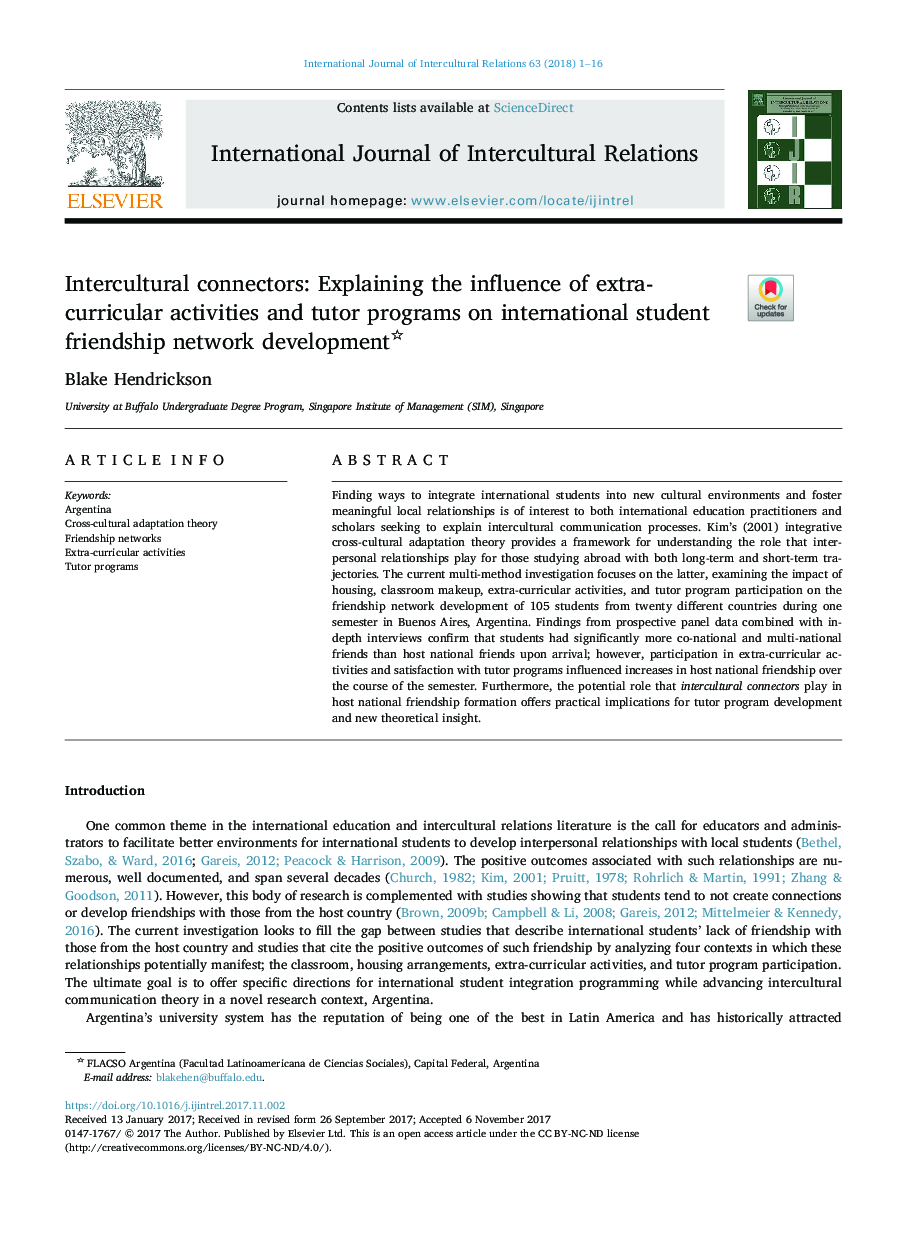| Article ID | Journal | Published Year | Pages | File Type |
|---|---|---|---|---|
| 7323630 | International Journal of Intercultural Relations | 2018 | 16 Pages |
Abstract
Finding ways to integrate international students into new cultural environments and foster meaningful local relationships is of interest to both international education practitioners and scholars seeking to explain intercultural communication processes. Kim's (2001) integrative cross-cultural adaptation theory provides a framework for understanding the role that interpersonal relationships play for those studying abroad with both long-term and short-term trajectories. The current multi-method investigation focuses on the latter, examining the impact of housing, classroom makeup, extra-curricular activities, and tutor program participation on the friendship network development of 105 students from twenty different countries during one semester in Buenos Aires, Argentina. Findings from prospective panel data combined with in-depth interviews confirm that students had significantly more co-national and multi-national friends than host national friends upon arrival; however, participation in extra-curricular activities and satisfaction with tutor programs influenced increases in host national friendship over the course of the semester. Furthermore, the potential role that intercultural connectors play in host national friendship formation offers practical implications for tutor program development and new theoretical insight.
Keywords
Related Topics
Social Sciences and Humanities
Business, Management and Accounting
Business and International Management
Authors
Blake Hendrickson,
